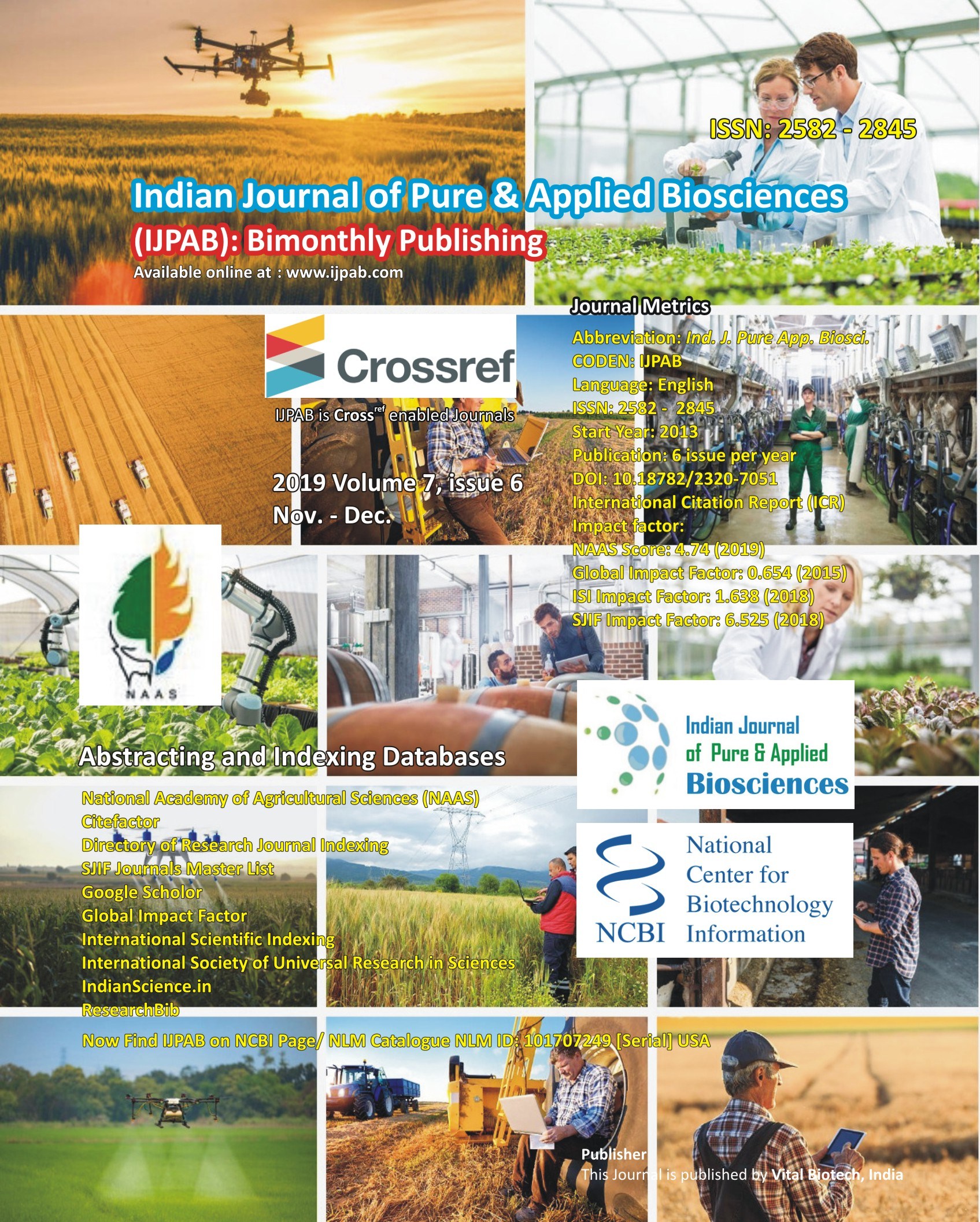
-
No. 772, Basant Vihar, Kota
Rajasthan-324009 India
-
Call Us On
+91 9784677044
-
Mail Us @
editor@ijpab.com
Indian Journal of Pure & Applied Biosciences (IJPAB)
Year : 2019, Volume : 7, Issue : 6
First page : (412) Last page : (415)
Article doi: : http://dx.doi.org/10.18782/2582-2845.7860
A Study on Disease Management of Iron Deficiency Anemia in Adolescent Girls
Mansor Mohamed Ali Alholi1 and Sapna Smith Lal2*
1Phd Scholar, 2Assistant Professor
Sam Higginbottom University of Agriculture, Technology and Sciences-Prayagraj-211007-U.P, India
*Corresponding Author E-mail: sapna.lal@shiats.edu.in
Received: 12.10.2019 | Revised: 17.11.2019 | Accepted: 25.11.2019
ABSTRACT
Anemia is present in a population when haemoglobin (Hb) concentration is less than 12g/dl between 12-14 years. The severity of anemia is classified on the basis on WHO i.e. Hb < 7gm%: Severe anemia, Hb 7-10 gm%: Moderate anemia, Hb 10-12 gm%: Mild anemia and Hb >12 gm%: Non- anemic. It is a serious public health problem in India affecting all segments of the populations. The vulnerable groups are infants, young childrens, adolescent girls, women of child bearing age and pregnant women. According to World Bank report (India’s undernourished children: A call for reform and action) India is a country with highest prevalence of death due to anemia in the pregnant women (87%). Iron deficient anemia is one of the common disorders of iron metabolism due to oxidative stress and it is reported that vitamin E deficiency is one of the major causes behind iron deficient anemia by many researchers. Recent studies reveals that in iron deficiency anemia, life span of RBCs is reduced that increases the potential for oxidative stress. Vitamin E has been identified as an essential erythropoietic factor for certain species of animals.So keeping this point at mind this study is designed for disease management. Total 520 girls were selected for this study with their written consent. 5 ml of blood were taken as a study sample from adolescent girls for estimation of iron profile tests before and after supplementation. Group I was consisting with 320 iron deficient girls taken iron folic acid (100 mg iron + 0.5 mg folic acid daily) + Vitamin E (400 mg once a time daily) for three month. + antihelminthic drug Albendazole 400 mg once a single dose for six month where as Group II consist of 220 girls taken only same amount of iron and folic acid for six month. This work was approved by institutional ethical committee. From the study it was reveals that the group received vitamin E with their regular iron tablets having great increase in their Hb levels (7%). It was concluded from the research that supplementation of antioxidant vitamins are able to enhance iron metabolism and iron absorption which leads a significant improvement in hemoglobin level of anemic girls with one year.
Keywords: Iron deficient anemia, Antioxidant vitamin, Hemoglobin, Iron absorption, Oxidative stress.
Full Text : PDF; Journal doi : http://dx.doi.org/10.18782
Cite this article: Manssure, MA.A.. & Smith Lal, S., (2019). A Study on Disease Management of Iron Deficiency Anemia in Adolescent Girls, Ind. J. Pure App. Biosci. 7(6), 412-415. doi: http://dx.doi.org/10.18782/2582-2845.7860

